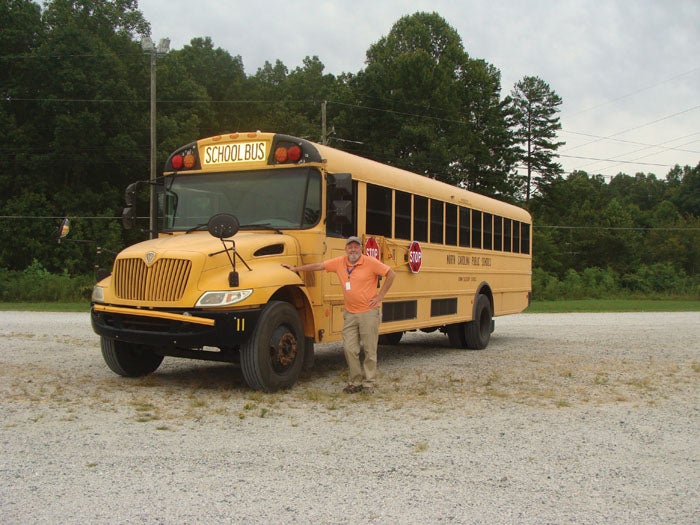RSS creates ways for non-teaching staff to keep working
Published 12:01 am Thursday, April 2, 2020

- Submitted photo. John Allen is able to work from home full time with alternate assignments provided by the school district.
By Carl Blankenship
carl.blankenship@salisburypost.com
SALISBURY – When Gov. Roy Cooper issued an executive order for all public schools in the state to close in mid-March, Rowan-Salisbury Schools, along with every other public school system in the state, had to scramble over the weekend to create a plan.
Fortunately, the district had already begun planning for possible closure or changes. Teachers could be transitioned to leading their classes from home, but other employees like custodians, bus drivers and nutrition workers would have difficulty working their full schedules with all of the school facilities closed. Those workers could choose to help with the district’s bus and car rider line meal distribution, but doing that isn’t easy for employees that are part of the population vulnerable to COVID-19 or have people at home who are vulnerable.
Bus driver John Allen is a retired chemist, 67 and healthy, but he decided to do work at home created by the district because his daughter has an autoimmune disease. He is still able to work full-time because the district created new professional development courses as a stand-in for what he would normally be doing.
There is a long list of modules and webinars for staff to participate in. Allen said some of the best items have been original content created by RSS staff. The topics range from how to document work during the closure, how to manage stress, understanding renewal, managing classrooms in difficult times and positive relationship building.
The district created a guide book filled with the opportunities available to staff. For the webinars, employees watch and read about a topic and reflect on it.
“We are so appreciative of what the classified staff are doing and we wanted to ensure that they have work to do from home just like everyone else,” said South Rowan High School Innovation Coach Amie Caudle.
There is a module for classified employees on the Achieve3000 literacy program — something Caudle said classified employees would not normally learn about. Learning about tools like Achieve3000 gives classified employees more opportunity to engage with students.
“That person will be able to be in the conversation, not just teachers,” Caudle said.
The district will be up to 20 modules this week, and Caudle said the team is dedicated to not running out of content.
“There’s not an end to professional growth,” Caudle said. “I just feel that our team, we will not run out of modules. We are committed to providing work.”
RSS Lead Literacy Coach Brittany Saunders said the district is trying to use the opportunity to bring professional development to all of the district’s employees.
“We wanted to have loads of content on the first day. So, each day since then, we’ve tried to build resources and add into it and constantly update so that we can keep the content really high quality,” Saunders said.
Allen said he could have taken leave, but he chose to keep working to stay connected with the kids who ride his bus and the people he works with. Though, he still misses the kids.
“I can’t imagine being a bus driver and not enjoying being with kids,” Allen said. “It’s like being a life guard and not liking going in the water.”



